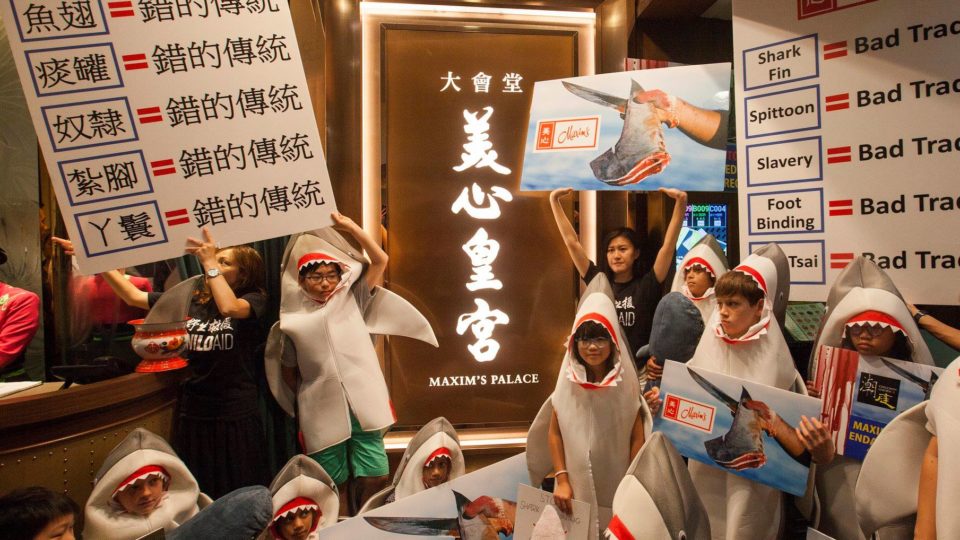Dozens of activists, some dressed as sharks, descended on restaurants owned by Maxim’s Caterers Limited on the weekend to the demand the hospitality group stop serving shark fin dishes at their outlets.
Led by WildAid, the demonstration was the latest effort by the group to end the “cruel and unsustainable” trade in the expensive Chinese delicacy, demand for which is a major factor threatening the future of many shark species.
Protesters targeted two restaurants in Central — among more than 50 Maxim’s-owned outlets that serve shark fin soup in Hong Kong — marching on Saturday to Chiuchow Garden restaurant in Jardine House and Maxim’s Palace in Hong Kong’s City Hall, the company’s flagship venue.
The group has sent Maxim’s a letter signed by 276 NGOs, conservation groups and scientific researchers calling for it to dump shark fin.
It’s also called on US burger chain Shake Shack — which is partnering with Maxim’s in its plans to soon open in Hong Kong — to ditch the hospitality group unless it ceases the trade.
In response, Maxim’s, Hong Kong’s biggest restaurant group, claimed in a statement released on the weekend that it followed “sustainable sourcing strategies”.
This, it said, entailed only using fins from blue sharks, which were listed among “lower risk, near threatened” species by the International Union for Conservation of Nature.
The company also pointed to its promotion of an “ocean-friendly” banquet menu that didn’t use shark fin and its work with local university students to promote “shark-free” alternative options at restaurants.
WildAid Hong Kong Campaigner Alex Hofford, however, told Coconuts the company’s use of blue shark was based on outdated data and ignored recent research showing severe population decline in the species.
“It’s just greenwash. There’s nothing substantive,” he said of Maxim’s response.
“It’s more greenwash than before, which I guess is good because it means that they’re trying to counteract our claims, but it doesn’t really wash at all.”
“It’s in the last 13 years that blue sharks are getting whacked in the Pacific and Atlantic oceans but they’re ignoring that.”




